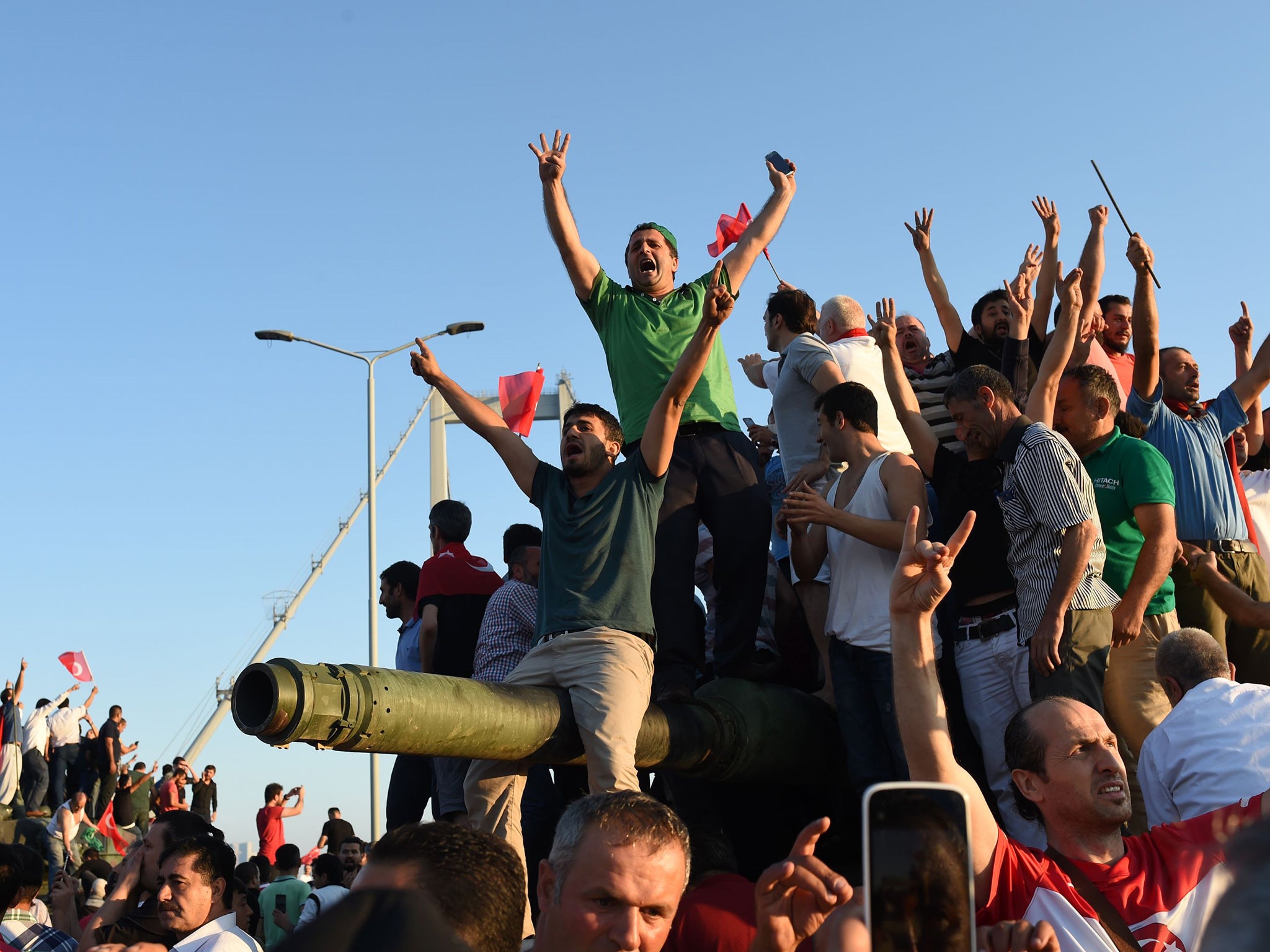Turkey coup attempt: Supreme Military Council plans overhaul after 1,700 military personnel discharged
More than 130 media outlets have been shut down and arrest warrants issued for journalists

Turkey's Supreme Military Council met for four hours under the Prime Minister's watch on Thursday as a purge of thousands of soldiers, police and state employees continued following a failed coup.
Two of the country's most senior generals resigned from their posts shortly before the crucial meeting after almost 1,700 military personnel were dishonourably discharged for their alleged role in the attempt to oust President Recep Tayyip Erdogan.
Binali Yildirim, the Prime Minister, and defence minister Fikri Isik were present at the summit for the first time as it took place under heightened security at Mr Yildirim's residence in Ankara, in a symbol of increasing government influence.
The soldiers who traditionally guard the meeting room were replaced by intelligence officers, while the airspace above Cankaya Palace was reportedly closed.

With the council holding responsibility for appointments and promotions, the meeting was expected to spearhead a major restructure of the Turkish military as efforts to eliminate suspected coup plotters and sympathisers continue.
Its decisions must be approved by President Erdogan, who pledged to overhaul the army last week amid criticism of his increasingly authoritarian style.
The cull of military personnel has so far included 149 generals and admirals, which would represents 40 per cent of all top-level Turkish military staff.
Authorities claim the failed coup on 15 July was staged by a military faction loyal to exiled Muslim cleric Fetullah Gulen, who lives in the US.
But the Gulen or “Hismet” movement denied involvement and the leaders of the coup said only that they wanted “to ensure and restore constitutional order, democracy, human rights and freedoms” as battles ranged in Ankara.
Hundreds of soldiers armed with fighter jets, helicopters and tanks took control of key areas of the capital while Mr Erdogan was on holiday but were defeated after the President flew into Istanbul to make a defiant speech against an “act of treason and rebellion”.
Around 16,000 people have since been detained over suspected links to the failed uprising and tens of thousands of state employees including police, teachers and judges have been dismissed from their posts.
The former governor of Istanbul, Huseyin Avni Mutlu, and academics were among those arrested on Wednesday.
Arrest warrants were issued for 89 journalists and 131 media outlets have been shut down using powers under Turkey’s state of emergency, including news agencies, television channels, newspapers, magazines and publishers.
Among those singled out were columnists and other staff of the now defunct Zaman newspaper, which was seized in March over alleged links to the Gulen movement.
The list includes journalists known for leftist activism, such as Sahin Alpay, who do not share the religious worldview of the Gulenist movement, fuelling concerns over a “witch-hunt” of the president's political opponents.
Western governments and human rights groups have condemned the coup attempt, in which at least 246 people were killed and more than 2,000 injured, and also expressed concern over the extent of the crackdown tightening Mr Erdogan’s grip on power.
Other than giving British citizens safety advice, UK leaders have made no official comment on the situation other than to reiterate support for the elected government.
The United States said it understood Turkey's need to hold perpetrators of the attempted coup to account, but said the detention of more journalists was part of a “troubling trend”.
John Kirby, a spokesperson for the State Department, repeated “unequivocal support” for the government but added: “We have urged President Erdogan to show restraint, to act within the rule of law, to avoid actions that would lead to further violence and instability.
“We obviously support bringing the perpetrators of the coup to justice and we also continue to stress the importance of upholding democratic principles and the rule of law through the process.”
He said Washington was concerned about press freedom in Turkey and identified a “troubling trend where official bodies ... are being used to discourage legitimate political discourse.”
American officials have not publicly responded to demands from the Turkish government to hand over Gulen, who lives in Pennsylvania.

Political parties led by Mr Erdogan’s ruling Justice and Development Party (AKP) are discussing plans to increase parliamentary control of a key state body that appoints judges and prosecutors as the crackdown continues.
Schools, charities, unions and hospitals have also been closed.
Amnesty International said human rights were “in peril” in Turkey and condemned the “swift and brutal” response enabled by the three-month state of emergency declared on 21 July.
The government is allowed to bypass parliament by ruling by decree during the period, with the ability restrict rights including freedom of assembly and enhanced powers of arrest and dismissal.
Amnesty International said there is credible evidence of detainees being subjected to beatings, torture and rape.
“This is the latest alarming development in what is increasingly becoming a brazen purge based on political affiliation,” said Gauri van Gulik, the group’s deputy director for Europe.
“By rounding up journalists the government is failing to make a distinction between criminal acts and legitimate criticism.
“Rather than stifling press freedom and intimidating journalists into silence it is vital that Turkish authorities allow the media to do their work and end this draconian clampdown on freedom of expression.”
Additional reporting by agencies
Join our commenting forum
Join thought-provoking conversations, follow other Independent readers and see their replies
Comments
Bookmark popover
Removed from bookmarks